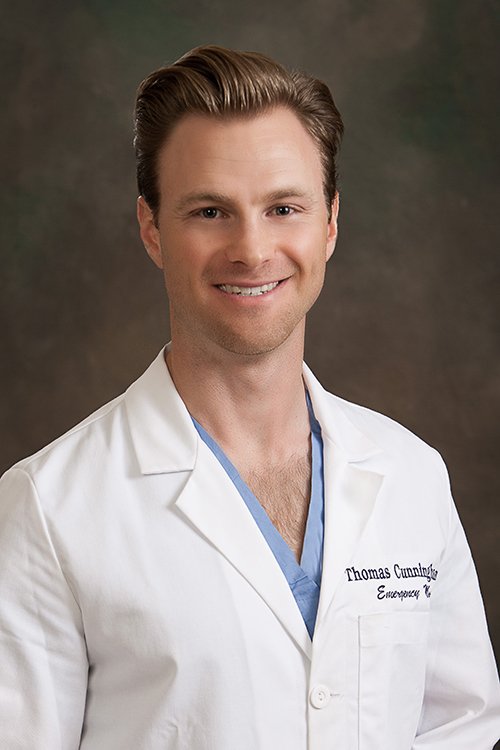Published on February 10, 2016
Living Well: Know How To Respond To Diabetic Emergencies
What you know about diabetes can help save a life.
As an emergency medicine physician, diabetes is an enormous concern. Nationally, about 9 percent of people (1 in 11) have diabetes. Unfortunately, the problem doesn’t end there. That’s because more than one-fourth of the people who have diabetes haven’t been diagnosed and don’t know they have it.
If you don’t have diabetes, it can be prevented or delayed. If you do have diabetes already, there are things you can do manage this condition and live a long, happy life.
What Causes Diabetes?
Your body uses a hormone called insulin to convert food into glucose, a sugar that cells can use for energy. Diabetes happens when, for various reasons, the level of sugar in your blood is too high.
Diabetes comes in two main varieties:
- Type 1: Typically diagnosed in children but can also develop in adults. This occurs when the body’s immune system attacks and destroys the cells of the pancreas, the organ which produces insulin. Type 1 diabetics must take insulin daily, exercise and closely monitor their diet. About 5 percent of diabetes cases diagnosed are Type 1.
- Type 2: Occurs when a person’s cells develop resistance to insulin, causing them to need more insulin to process sugar. Eventually, they cannot make enough insulin to keep up. These individuals must also monitor their diet, exercise and may need medication. Type 2 makes up about 90 to 95 percent of diagnosed cases of diabetes.
Diabetes can also occur temporarily due to certain medications or pregnancy. Gestational diabetes resolves after pregnancy but increases the risk a woman will develop Type 2 diabetes later in life.
What Does Diabetes Do?
Too much sugar in your blood causes damage to blood vessels. It is strongly connected to several health problems, and can lead to or worsen others. These include:
- High blood pressure
- Cardiovascular (heart) disease
- Kidney damage, disease and failure
- Increased risk of heart attack and stroke
- Blindness from retinal damage
- Nerve damage and loss of ability to feel hands and feet
- Poor blood circulation, which can lead to amputations
- Obesity
Any of the above conditions are serious, with some being devastating or deadly. That’s why preventing diabetes or managing it once it’s diagnosed are so important.
Diabetic Emergencies
Diabetic emergencies happen when blood sugar is too high, called hyperglycemia, or too low, called hypoglycemia (an easy way to remember is “hyper” means high and “hypo” rhymes with “below”).
Low blood sugar is a true emergency. Early symptoms include sweating, shakiness, irritability, rapid heartbeat or palpitations, pale skin, fatigue and hunger. As it worsens, a person can become lethargic, confused or pass out. If blood sugar drops too low, an unconscious person may stop breathing.
High blood sugar is not immediately life-threatening and takes time to develop. The first, most common symptoms a person will notice are fatigue and needing to urinate frequently. As it worsens, a person may develop nausea, vomiting, abdominal pain and shortness of breath. If left untreated, a person can eventually develop confusion and lose consciousness.
If you suspect a person is having a diabetic emergency, here’s what you can do to help:
- If the person is unconscious, always call 911 immediately
- If you have a blood glucose meter and know how to use one correctly, test their blood sugar.
- If a person’s blood sugar reads as low or you don’t know what their blood sugar is, try to give them something to bring up their blood sugar.
- If they are conscious and alert, orange juice or sugar tablets are a good way to give sugar.
- If they are not conscious or alert enough, you can use glucose paste (frosting or icing work in a pinch) and rub it on their gum line just inside their mouth, but not past their teeth. The sugar will still be absorbed that way.
I recommend giving someone sugar if they are having a diabetic emergency, regardless of whether their sugar is high or low. This is because if their sugar is too low, it can save their life. If their sugar is too high, giving them more won’t immediately harm them and we can address that later.
If you want to know more about diabetes and how to prevent it, talk to your primary care provider and get in the habit of seeing your provider yearly for a physical. This can be key to helping you catch health problems like diabetes early or even before they develop. A little prevention can go a long way to helping you have a long, healthy life.
Dr. Thomas Cunningham is a board-certified emergency medicine physician at Owensboro Health Regional Hospital.
About Owensboro Health
Owensboro Health is a nonprofit health system with a mission to heal the sick and to improve the health of the communities it serves in Kentucky and Indiana. The system includes Owensboro Health Regional Hospital, nationally recognized for design, architecture and engineering; Owensboro Health Muhlenberg Community Hospital; Owensboro Health Twin Lakes Medical Center; the Owensboro Health Medical Group comprised of over 350 providers at more than 30 locations; four outpatient Healthplex facilities, a certified medical fitness facility, the Healthpark; a weight management program, and the Mitchell Memorial Cancer Center.
On average each year, we have more than 19,000 inpatient admissions, deliver 2,000 babies and provide the region’s only Level III NICU. Owensboro Health physicians perform nearly 33,000 surgical procedures, including nearly 150 open-heart surgeries. Our physicians and staff have 90,000 Emergency Department visits and more than 1.25 million outpatient visits annually. Visit our home page for more information.
